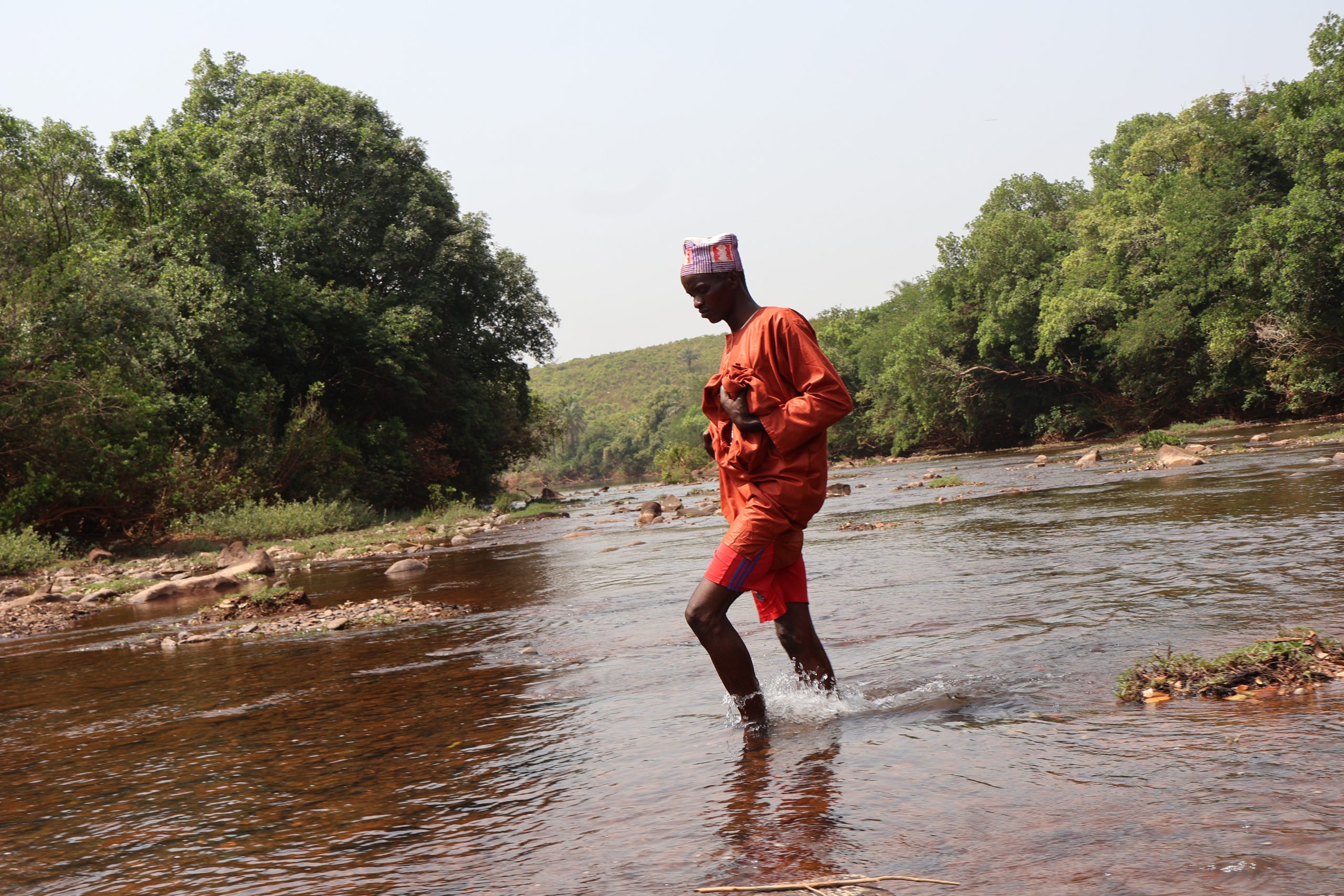A new report released today by the international human rights organization Inclusive Development International and the Guinean NGOs Action Mines-Guinea, CECIDE and ADREMGUI, “I Will Do Anything to Stay Here”: What a Just Energy Transition Means to Communities at Risk from Bauxite Mining in Guinea, presents perspectives from people at risk from the anticipated expansion of one of the world’s largest bauxite mines—a joint venture of Rio Tinto, Alcoa, Dadco and the Guinean government, which supplies raw materials for use in electric cars, solar panels and batteries.
“Guinea’s bauxite industry is on the cusp of what could be its most significant expansion since large-scale mining began in the 1960s,” said Dustin Roasa, research director at Inclusive Development International and the author of the report. “People living in the path of planned new mines desperately want to avoid the land grabs and environmental damage that have sadly been routine in the past. They have a lot to say, and it will benefit everyone if the mining companies and the Government of Guinea listens.”
“This land is ours. We inherited it from our fathers. We want to pass it on to our sons. We should decide what happens to this land,” said Kadiatou Bah, a grandmother of 15 featured in the report, who has lived in Horé Lari village in northwestern Guinea since the 1960s.
The new report outlines the concerns and expectations of the rural communities north of the Cogon River where Compagnie des Bauxites de Guinée (CBG) is currently exploring to expand its mining operation. In the report, these community members explain how they want the mining company and its shareholders, lenders and buyers to engage with them before any mining proceeds on their land and what they expect in return. The publishers of the report believe if the company meets these expectations, it will help them avoid harm, conflict and costs in the future and result in better outcomes for all parties.
“CBG’s past mining operations have caused unnecessary harm to local communities and the environment, and while some progress has been made in recent years, expansion of the mine into the rich agricultural areas north of Cogon could be devastating to the land-connected communities who live and farm there,” said Amadou Bah, executive director of Action Mines-Guinea. “But avoiding these harms is possible if these communities are meaningfully engaged as partners throughout all stages of project development. Mining companies operating in Guinea, including CBG and its shareholders, should not repeat the mistakes of the past and should use this as an opportunity to uphold the highest standards from the beginning.”
Community expectations
Key community requests include:
- Mining should proceed only once there has been a true dialogue and affected communities have provided consent to the terms on which the project can proceed.
- There should be a fully transparent census process and participatory impact assessment and CBG and the communities should reach agreement on plans to avoid or mitigate negative impacts and the benefits that communities will receive.
- Fair compensation should be provided, including for losses due to the exploration activities currently underway, before any land-taking occurs.
- Communities should have access to technical and legal advisers to support them in these processes.
The communities’ expectations outlined in the report were informed by the experiences of their neighbors to the south who have already been affected—in some cases, displaced entirely—by mining, and who have for many years been advocating for remedy and compensation for harms that have already taken place.
“If this happens to us—if CBG destroys our land, streams and rivers like they have done on the other side of the river—we are as good as dead,” said Boubacar Bah, whose village Teliwora lies in the path of new mining. “We know that CBG is more powerful than us, but the people of Teliwora are strong and united. We are not afraid to stand up for our rights.”
Responsibilities of CBG’s business partners
The report was launched at an event held on the sidelines of the UN Forum on Business and Human Rights being held in Geneva this week, where panelists also pointed to the responsibilities of CBG’s lenders, including the International Finance Corporation, who they called on to tie any future financing to the condition that CBG secures a fair agreement with affected communities and fulfills the expectations for a rights-respecting, deliberative negotiation process. They also called on multinational companies that use CBG bauxite in their products—including the car companies Mercedes-Benz, BMW, Audi, GM, Ford, Toyota and Porsche—to support the agreement making process, including through the provision of pooled resources and use of leverage in their supply chains.
CBG’s opportunity to pilot a groundbreaking, rights-based approach to mining in Guinea
At the event, Inclusive Development International’s senior legal and policy director Natalie Bugalski also presented a recently released policy proposal, endorsed by more than 60 human rights, environmental justice and Indigenous Peoples’ organizations, that puts forward a framework for a rights-based approach to community participation in decision-making about investment projects that impact their land and lives—an approach they are calling on CBG to apply as they begin engaging with communities who could be affected by their mine expansion.
“A truly just energy transition is not possible unless the people whose land and resources are affected by transition mineral mining have agency in decision making about whether and how that mining happens,” said Bugalski. “Even when the highest industry standards are upheld, that isn’t happening, which is why we are calling for a wholly new approach to engaging land-connected communities—one that is rooted in respect for their rights and their ability to weigh the risks, trade-offs and opportunities presented by mining and make their own development decisions.”


